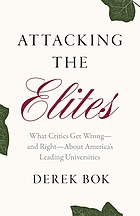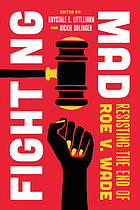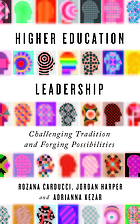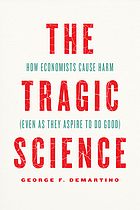Here is The Friday List! Every week, new books are arriving at RLB Library and to keep you up-to-date on what has come in, we’ll be posting the most recent 30 days of arrivals every Friday. The link below will take you to a catalog listing so that you can explore and find titles that interest you. Be sure to check back regularly to see what else has arrived!
THE FRIDAY LIST
If you want some ideas on what to read, here are some highlights, which can be found in the New Books kiosk by the information desk on the first floor of the library (eBooks can be accessed through the RLB website):

Attacking the elites : what critics get wrong–and right–about America’s leading universities, Derek Curtis Bok, 2024
Drawing on over fifty years of experience as a student, professor, dean, and president of Harvard University, Derek Bok examines the current disputes involving admissions, diversity, academic freedom and political correctness, curriculum and teaching, and even athletics in order to determine which complaints are unsubstantiated, which are valid, and how elite universities can best respond to their critics.

Fighting mad : resisting the end of Roe v. Wade, Edited by Krystale E Littlejohn and Rickie Solinger, 2024
Fighting Mad is a book about what “reproductive justice” means and what it looks like to fight for it. Editors Krystale E. Littlejohn and Rickie Solinger bring together many of the strongest, most resistant voices in the country to describe the impacts of the Supreme Court’s Dobbs decision and what it means for abortion access and care. The essayists and change agents in Fighting Mad represent a remarkable breadth of expertise: activists and artists, academics and abortion storytellers, health care professionals and legislators, clinic directors and lawyers, and so many more. They discuss abortion restrictions and strategies to provide care, the impacts of criminalization, efforts to protect the targeted, shortcomings of the past, and visions for the next generation. Fighting Mad captures for the social and historical record the vigorous resistance happening in the early post-Roe moment to show that there are millions on the ground fighting to secure a better future.

Higher education leadership : challenging tradition and forging possibilities, Rozana Carducci et al., 2024
Higher Education Leadership offers a groundbreaking exploration of leadership in higher education. Rozana Carducci, Jordan Harper, and Adrianna Kezar challenge traditional paradigms and ideologies that hinder progress—advocating instead for liberatory systemic change. The authors highlight new and evolving interdisciplinary leadership approaches for resisting and dismantling oppressive systems, including neoliberalism and white supremacy, within and beyond higher education organizations.

The tragic science : how economists cause harm (even as they aspire to do good), George DeMartino, 2022
In The Tragic Science, George F. DeMartino says what economists have too long ignored: that economists do great harm even as they aspire to do good. Everyone-including professionals in applied fields like public policy and government, and all those who are affected by economic practice-needs to understand how and why, and what can be done to address the problem. DeMartino isn’t a whistleblower, and he’s not casting his profession in nefarious terms. His argument is that economic harm is complicated, and economists aren’t equipped by their professional training to understand the causes and implications of the harm its practice induces. Not least, the profession represses its “irreparable ignorance”-the impossibility of knowing enough to do what economists are presently doing. For instance, economics requires discovering causality, but causal explanations in the social world require fictitious ‘counterfactual’ accounts of the world that can’t be proven to be right or wrong. As a consequence economists at best enjoy influence without control, which generates unpredictable harms. His case for change is centered on embracing irreparable ignorance, such as through “decision-making under deep uncertainty” (DMDU). DMDU represents a shift away from the field’s longstanding hubris and paternalism and toward professional humility and respect for the autonomy of those whom economists seek to serve. The Tragic Science is an essential, clear-eyed recasting of the dangers arising from the practice of society’s most powerful science